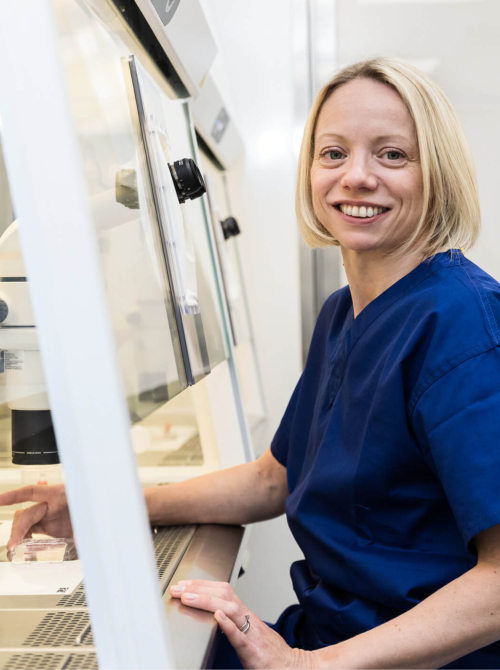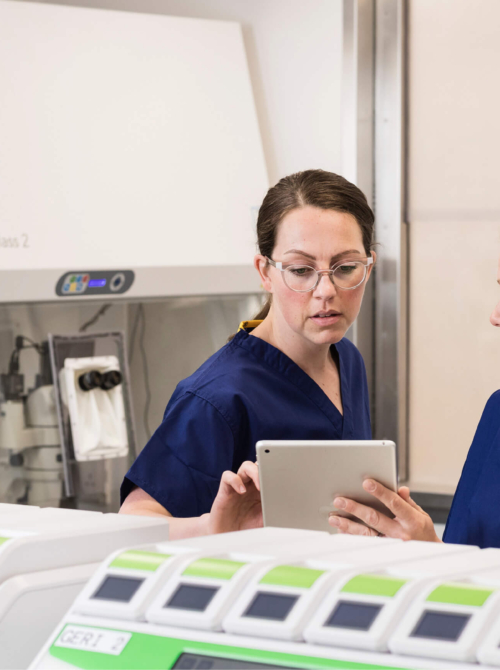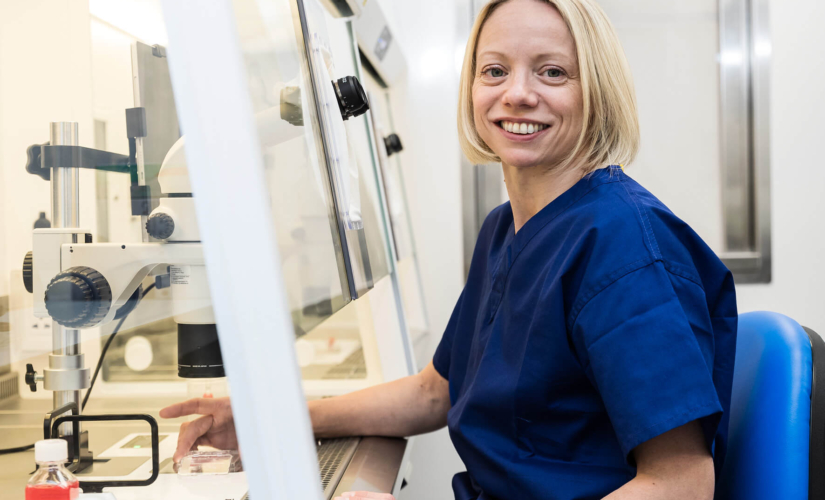What is PGT-M and how can it help those with hereditary genetic diseases?
Preimplantation Genetic Testing for Monogenic Diseases (PGT-M) is a potentially life-changing solution for patients concerned about passing on inherited genetic conditions to their offspring.
What is PGT-M?
PGT-M or Preimplantation Genetic Testing for Monogenic Diseases is a technique used in IVF or ICSI. It helps couples who have a high risk of transmitting genetic diseases to their offspring ensure that their child is not afflicted with genetic disorders.
What are Monogenic Diseases?
Monogenic diseases are genetic disorders that are caused by genetic variations that are passed down from parents to their child.
Common examples of monogenic diseases include Cystic Fibrosis, Haemophilia, Fragile X Syndrome, Myotonic Dystrophy and Huntington’s Disease.
PGT-M detects possible variants in genes. It is done before implanting the embryo into the mother’s uterus and is used together with IVF. The technique has been in use for over twenty-five years, and it has helped reduce the incidence of genetic disorders in humans.
Who is PGT-M for?
PGT-M is designed to help couples who are at high risk of transmitting genetic disorders to their child. If either parent is a carrier of a genetic disease, such as cystic fibrosis, sickle cell anaemia, or muscular dystrophy, the couple has a fifty per cent chance of transmitting the disease to their offspring.
PGT-M can help identify an embryo that carries the genetic variant, helping couples to ensure that their child does not suffer from a genetic disease.
How can PGT-M help?
PGT-M is an effective way of screening embryos for detectable genetic disorders. It helps potential parents who carry monogenic disorders to lessen the chances of passing genetic disorders to their children.
With PGT-M, the couple can undergo IVF, and the most viable embryos are sent for testing PGT-M. If any embryo has a genetic variation, that embryo is not implanted, and only healthy embryos are used to increase the success rate of a healthy baby. In other words, PGT-M is a way of reducing the risk of having a child with genetic disorders.
Various conditions that PGT-M can identify
PGT-M can detect a broad array of genetic conditions related to single-gene disorders. These include cystic fibrosis, sickle cell anaemia, thalassemia, Tay-Sachs disease, Huntington’s disease, and muscular dystrophy, among others.
The screening process was however designed to diagnose single-gene genetic disorders. If they undergo genetic testing and find they are carriers, couples might choose to undergo PGT-M, ensuring that an embryo is screened before implantation, reducing the risk of their offspring having a genetic disorder.
How can The Evewell help you with PGT-M?
At The Evewell, we don’t just focus on achieving a pregnancy but on ensuring a live birth.
A significant reason IVF fails, or a patient experiences recurrent miscarriage, is because of genetic or chromosomal abnormalities within the embryo. If your family history determines it is necessary to look at PGT-M, you will be able to achieve a hopefully chromosomally normal pregnancy free of the genetic disease carried in your family.
If you’re not achieving a successful pregnancy, or you know your future children are at risk of a genetic disease, the first step of your journey at The Evewell is to meet with one of our consultants and understand how PGT-M can work alongside other treatment plans to improve your outcome.
The Evewell embryologists – experts in PGT-M
Unique to The Evewell is having access to our embryology team who will take the time to walk you through the steps involved, explaining how PGT-M can help you on your family-building journey and answer any questions.
Our lab team have a unique combination of expertise in embryology and embryo genetics, giving them a fundamental understanding of the whole reproduction process from beginning to end.
Emma Whitney (aka @EmmaTheEmbryologist on Instagram) heads up both our Harley Sreet and West London labs.
With over 20 years of practical IVF laboratory experience, Emma specialises in PGT-M working with our patients to help prevent the transmission of inherited genetic diseases, and enhancing the capabilities of embryo selection via PGT-A.
Emma’s commitment to genetics, coupled with her multitude of experiences allows for a pragmatic and honest approach when discussing embryology.






